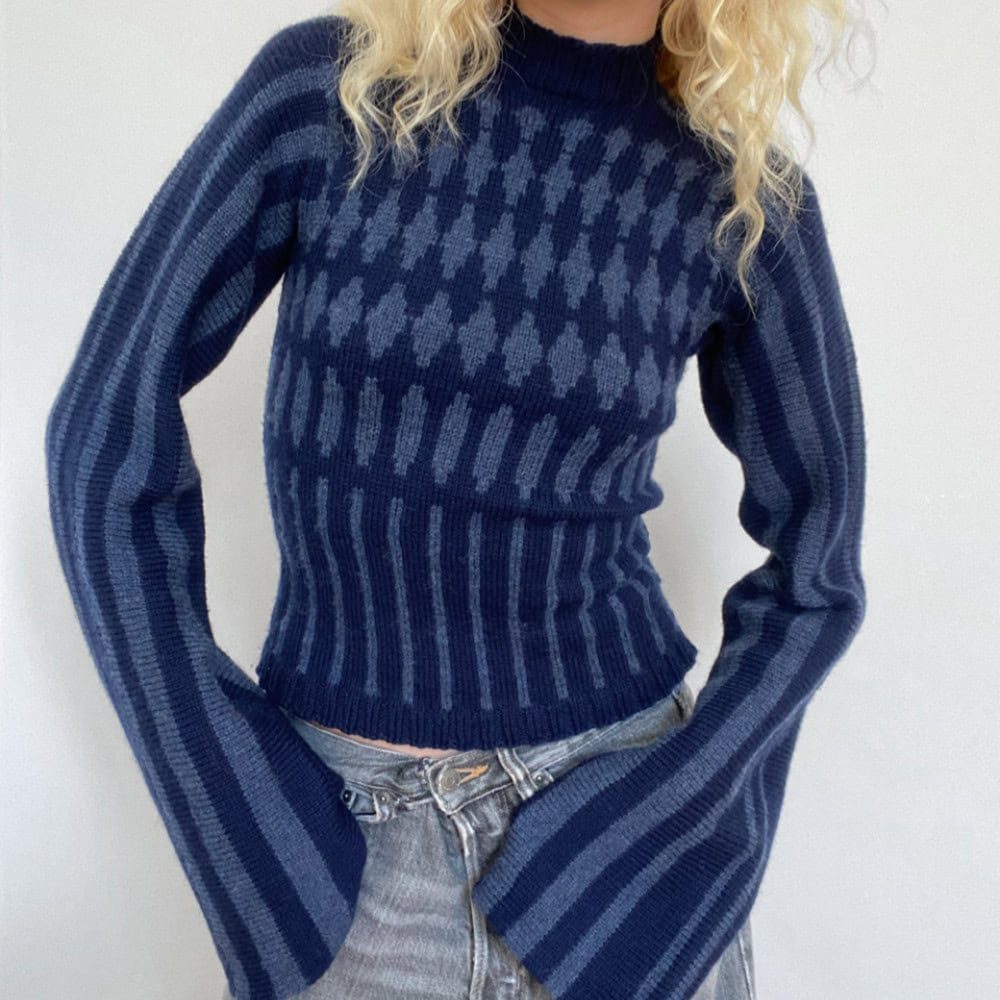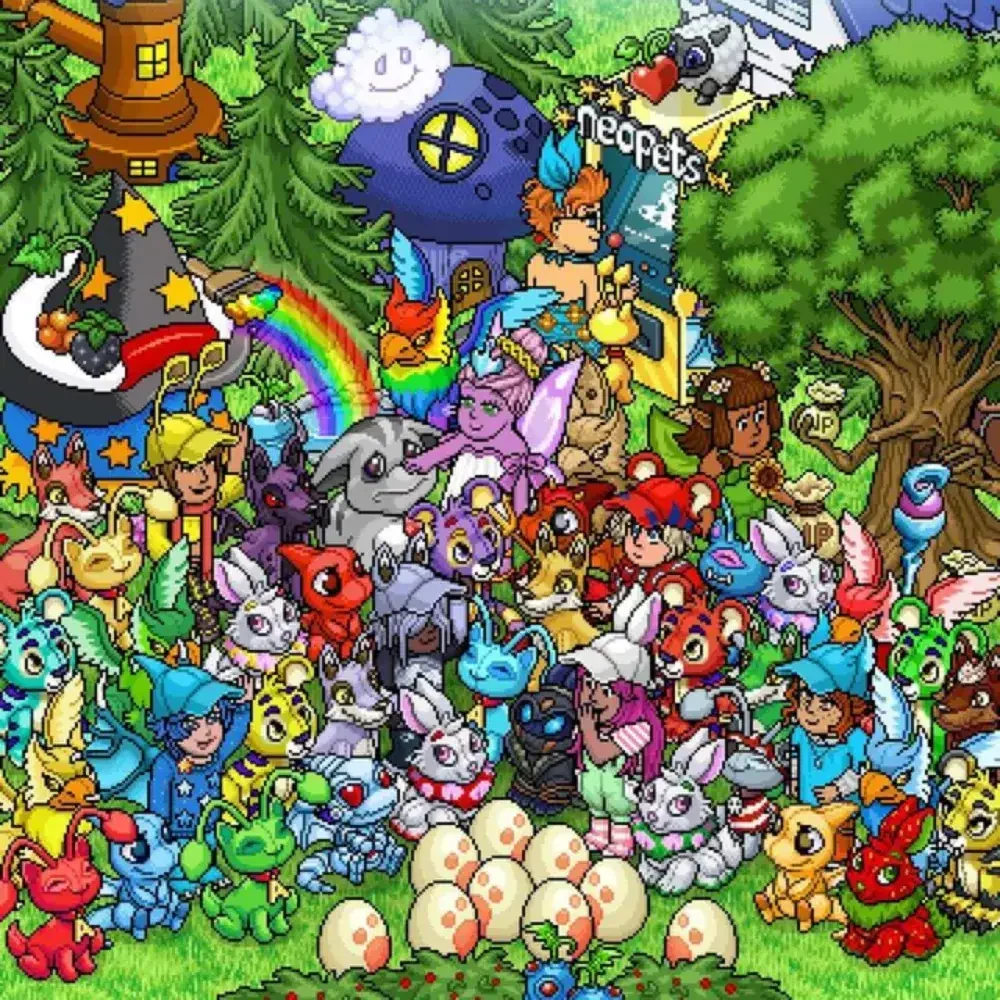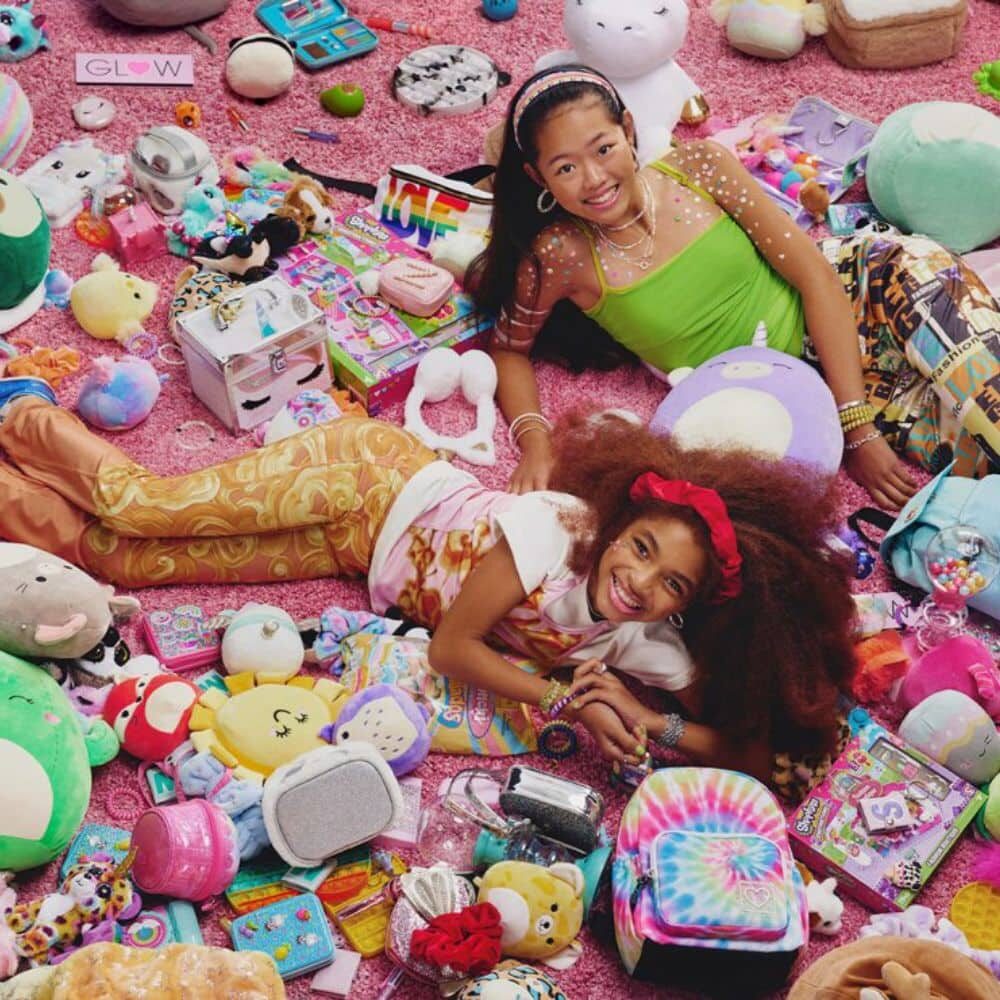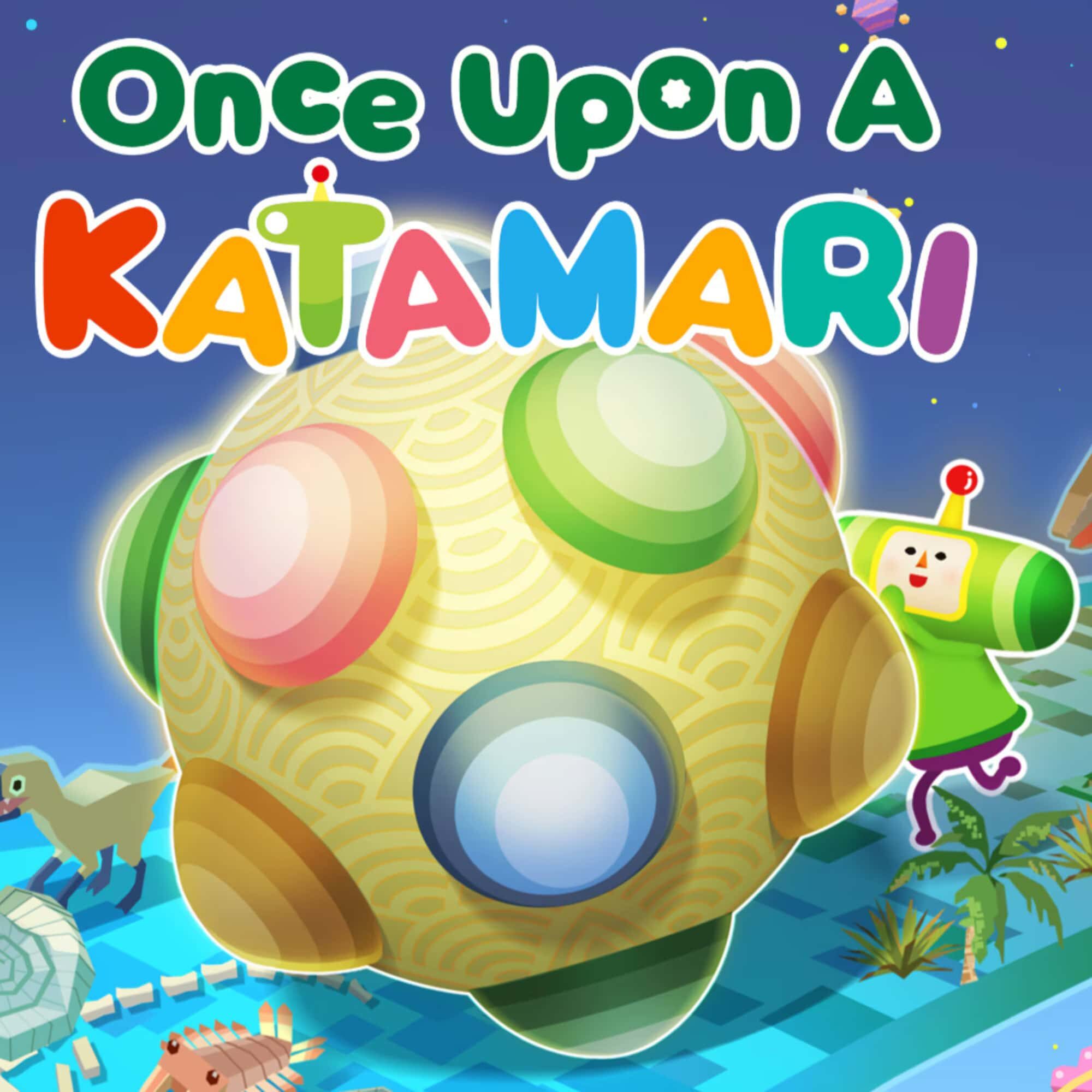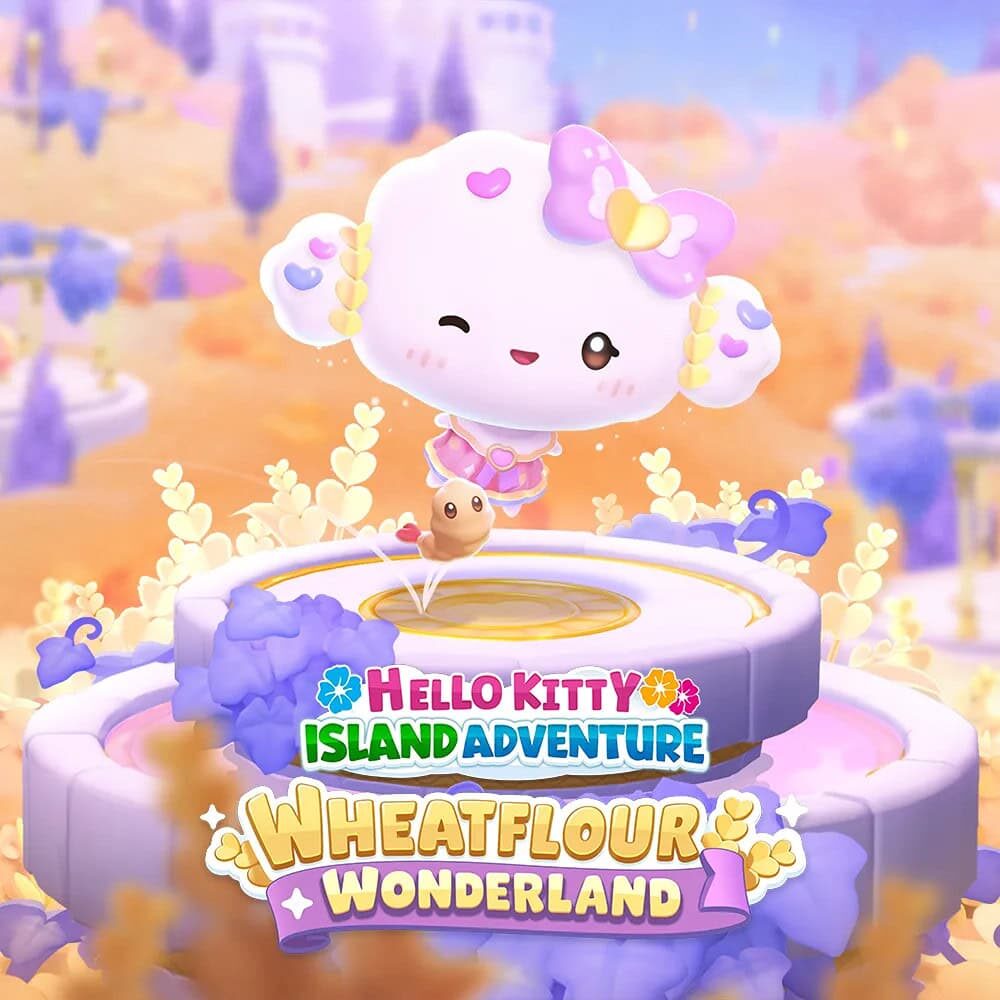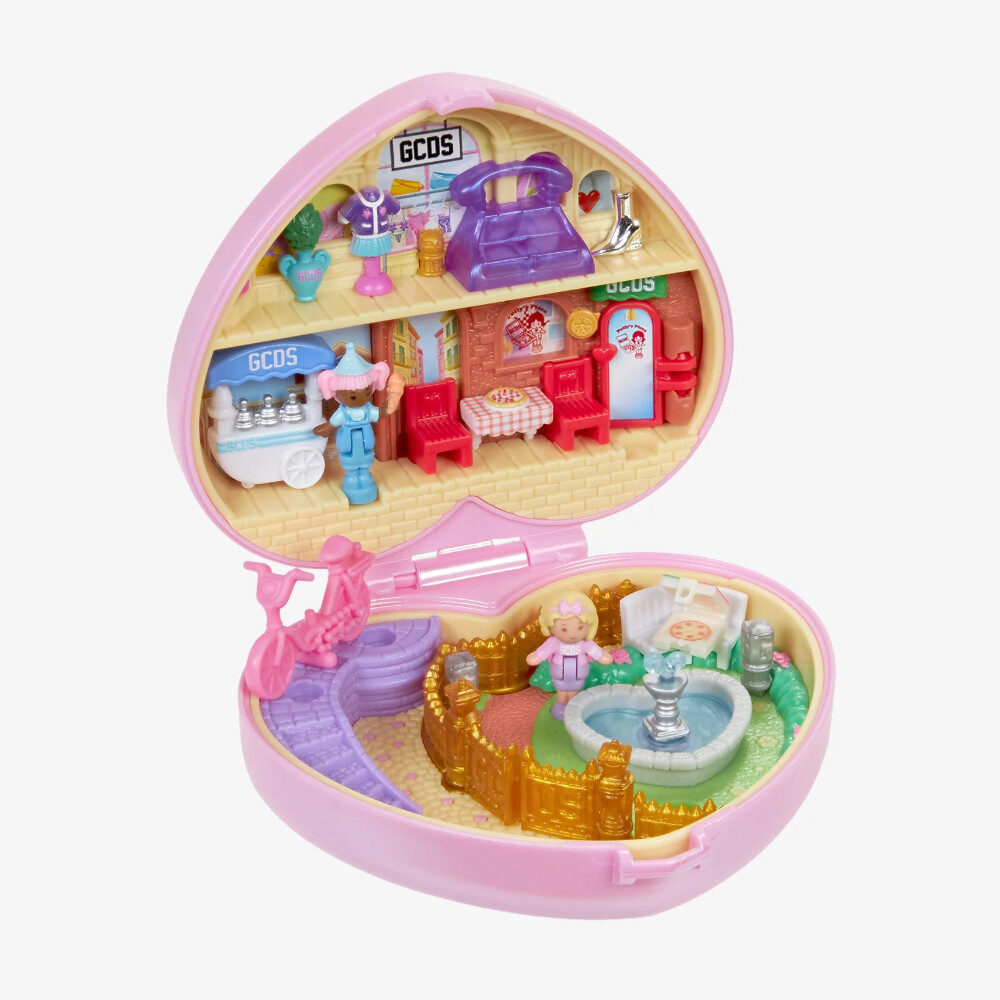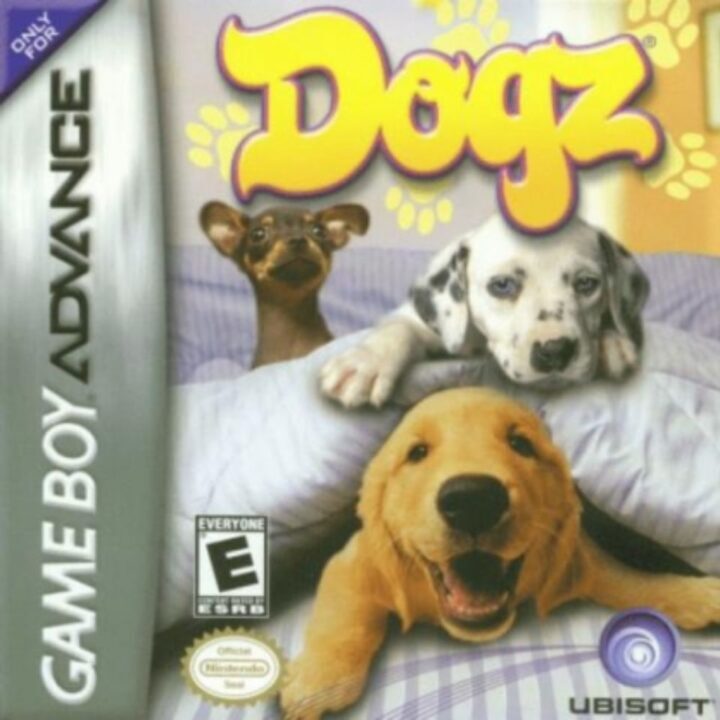
Dogz: A GBA Cult Classic
Dogz for the Game Boy Advance wasn’t just a game; it was a lesson in care, empathy, and chaos disguised as pixelated cuteness. While your siblings were conquering Mushroom Kingdoms or wielding Master Swords, you were busy teaching a jerky little sprite to sit, stay, and love. In all its tinny, glitchy glory, Dogz remains a small but mighty cornerstone of handheld gaming nostalgia.
TEXT
Wagging tails and Game Boy Advance nostalgia take centre stage in this ode to a gaming gem that taught us how to love our very first pixel pups.
They say a dog is man’s best friend, but in 2005, Dogz for the Game Boy Advance took that relationship digital, becoming the pocket-sized companion for a generation of gamers. Nestled in a cartridge that weighed less than a pack of gum was a world of boundless cuteness, endless responsibility, and just a pinch of chaos. To this day, Dogz remains an overlooked gem, a precursor to our current obsession with virtual pets, and for many—especially younger siblings tagging along on their older siblings’ gaming adventures—an introduction to the joys and trials of caring for something other than ourselves.
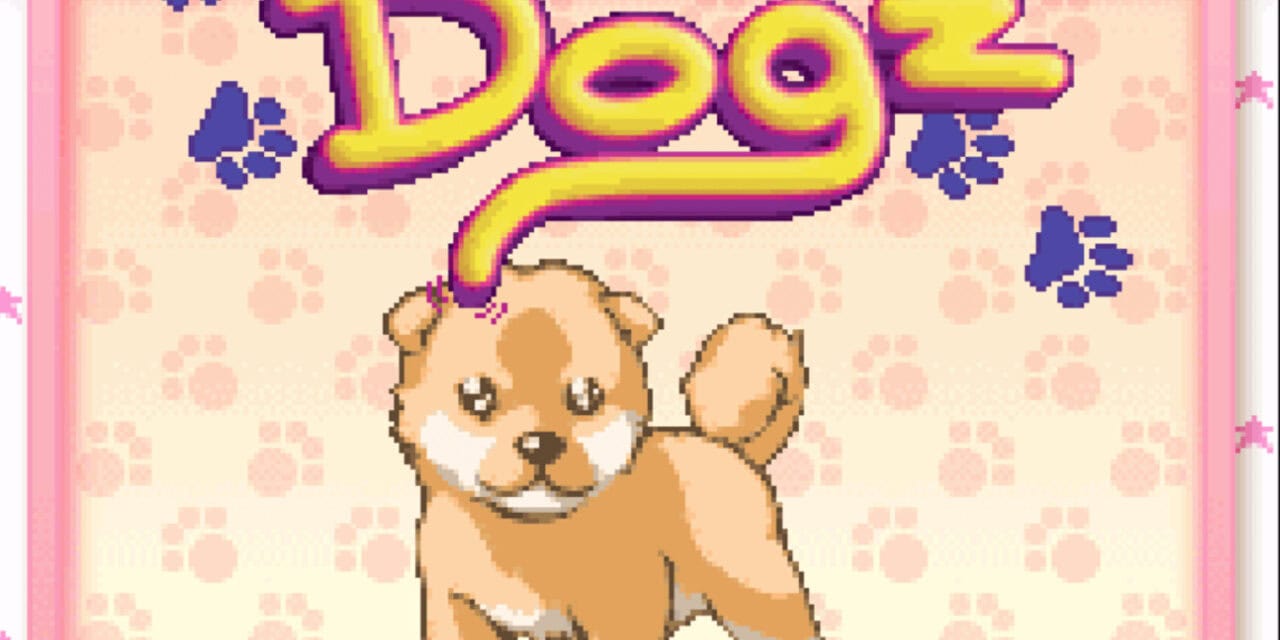
Dogz arrived at a time when the idea of a virtual pet was still a novel concept for handheld consoles. With no real-world dog to call their own, many younger players found this game to be a lifeline, offering the magic of canine companionship without the dreaded “cleaning up after them” bit.
The premise was deceptively simple: you pick a puppy, name it, and bring it home. From there, it’s all on you. Feed them, play with them, discipline them (gently, please), and watch as they grow into the goodest boy or girl. Beyond these basics, the game offered an array of delightful extras. Long dog walks became mini-adventures, toys transformed trips to the park into joyful outings, and brushing your dog wasn’t just cosmetic—it played a meaningful role in their happiness and even contributed to the game’s overall ending. You could even hoover your house to keep the living space spotless for your furry friend. But beneath this playful exterior lay a surprising depth. Dogz wasn’t just about pressing buttons to keep your virtual pup alive; it was about forming a bond—even if that bond was mediated through pixelated barks and wags.
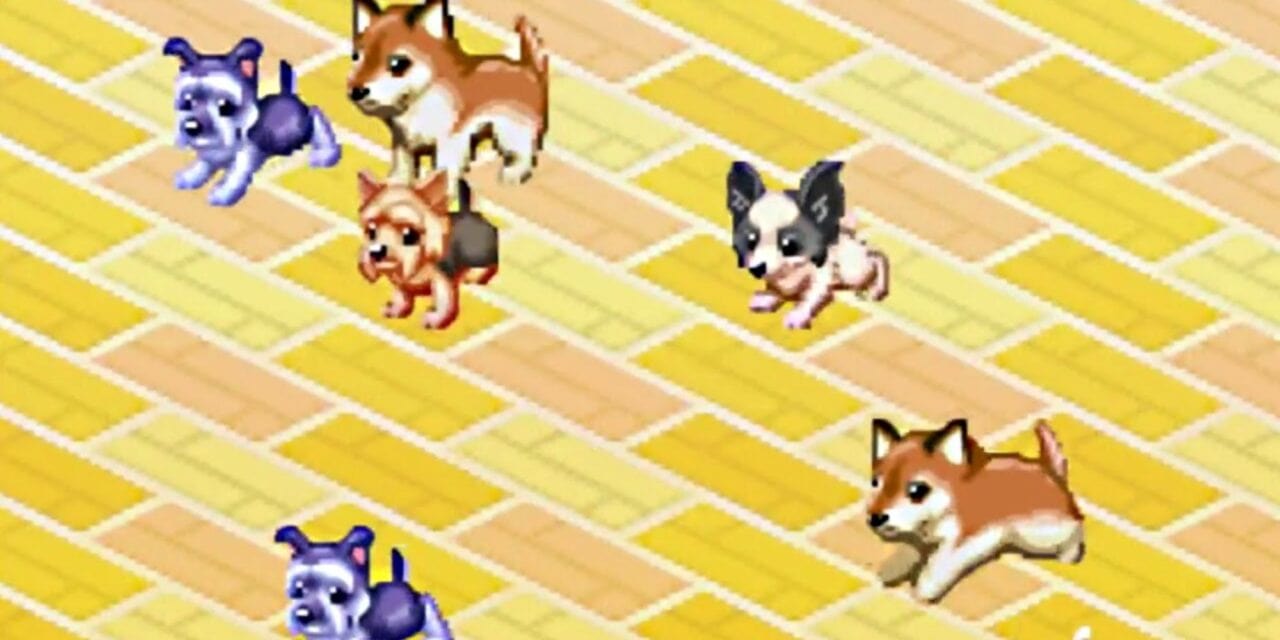
There was a certain charm in Dogz’ lo-fi aesthetic. The GBA’s limited graphical capabilities didn’t hinder the game’s emotional impact. In fact, the pixelated simplicity of the puppies gave them an almost timeless appeal. Their movements were jerky yet endearing, their barks tinny but heartfelt. It’s a reminder that you don’t need hyper-realistic fur physics or advanced AI to create a connection. Sometimes, a wiggly sprite on a colourful backdrop is enough to tug at the heartstrings.
But Dogz wasn’t just a sugary, feel-good experience. Beneath the cute veneer lurked a surprisingly challenging gameplay loop. Forget to feed your puppy? Watch their happiness plummet. Neglect playtime? Prepare for the guilt of seeing your virtual pet sulk in the corner. There were moments when the weight of responsibility felt overwhelming—a foreshadowing, perhaps, of the real-world demands of pet ownership. But that’s what made Dogz special. It wasn’t just a game; it was a simulation of care, a lesson in empathy disguised as entertainment.
The game’s soundtrack deserves a special mention. With its cheerful chiptune melodies, Dogz managed to capture the whimsy and unpredictability of puppyhood. Each track was a bouncy earworm, looping endlessly but never grating. Even now, the game’s main theme holds the power to transport players back to lazy afternoons spent curled up on the sofa, GBA in hand, with a virtual pup’s antics playing out on the tiny screen.
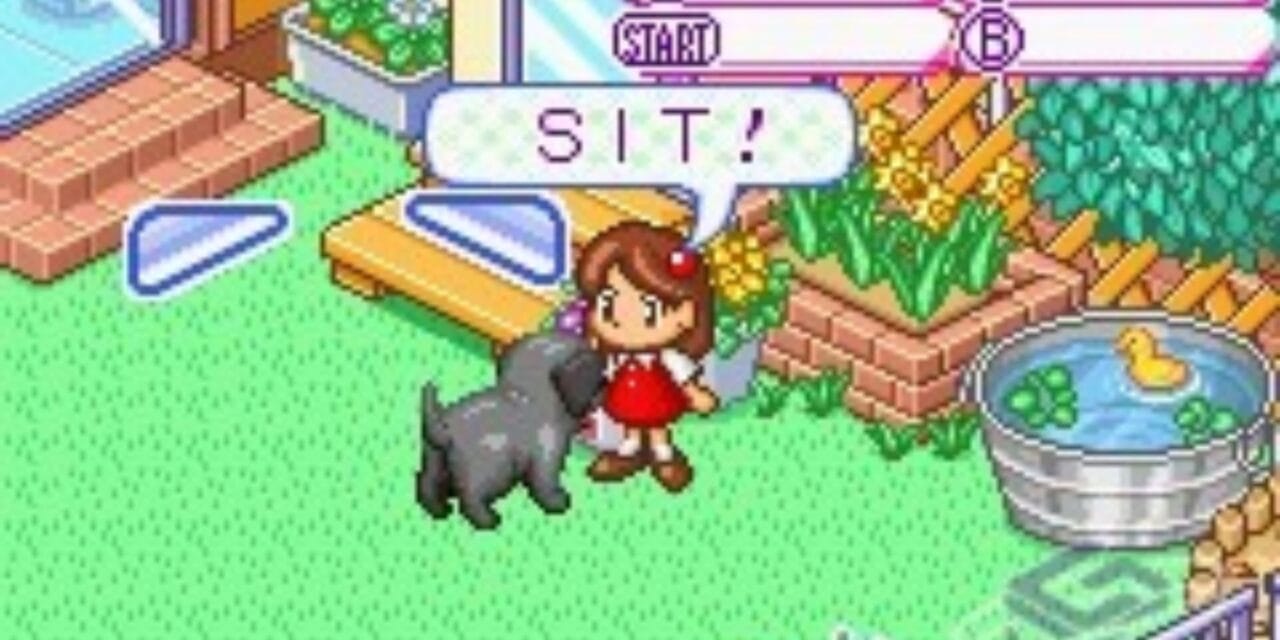
Dogz was also, in its own way, an early exploration of customisation and player agency. From choosing your puppy’s breed to decorating their living space, the game allowed players to put a personal stamp on their virtual pet’s world. This was 2005, long before The Sims or Animal Crossing would mainstream the idea of personalisation as core gameplay. Dogz did it first, and it did it with style.
Of course, no discussion of Dogz would be complete without addressing its quirks. The game’s pathfinding AI was… let’s call it charmingly chaotic. Puppies would often get stuck in corners, running endlessly into walls, their tiny pixelated legs flailing in vain. And yet, these glitches only added to the game’s charm. It was like watching a real puppy’s awkward first steps, full of mistakes but undeniably cute.
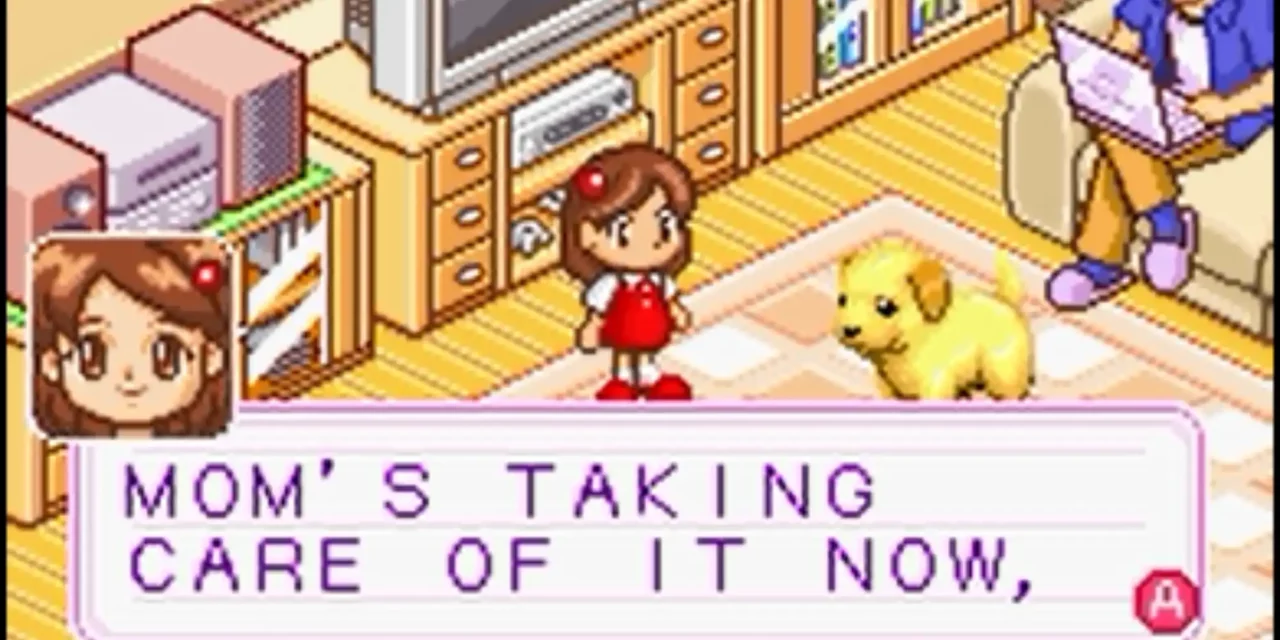
Looking back, it’s easy to see how Dogz laid the groundwork for today’s virtual pet phenomena. Games like Nintendogs, Tamagotchi, and even mobile hits like My Talking Tom owe a debt to the groundwork laid by Dogz. But while those games have pushed the boundaries of realism and interactivity, there’s something uniquely special about the simplicity of Dogz. It didn’t try to do too much; it just wanted to make you smile, and in that, it succeeded brilliantly.
For all its innovations, Dogz remains a largely forgotten gem, overshadowed by flashier titles and more prominent franchises. But for those who grew up with it—whether as the youngest in a family of gamers or as solo explorers of the cartridge’s world—Dogz is more than just a game. It’s a memory, a moment in time when life was a little simpler, a little more innocent. It’s the sound of tinny barks and cheerful chiptunes, the sight of pixelated paws skittering across a colourful screen. It’s a reminder that sometimes, the smallest things—a cartridge, a puppy, a game—can leave the biggest pawprints on our hearts.
And now, as Dogz’ legacy continues to linger, it stands as a testament to the enduring appeal of simple, heartfelt gaming experiences. In a world of endless sequels and high-definition remasters, there’s something refreshing about revisiting a game that just wanted you to care, to connect, and to love—even if it was just a little pixelated puppy on a tiny screen.
Wagging tails and Game Boy Advance nostalgia take centre stage in this ode to a gaming gem that taught us how to love our very first pixel pups.
They say a dog is man’s best friend, but in 2005, Dogz for the Game Boy Advance took that relationship digital, becoming the pocket-sized companion for a generation of gamers. Nestled in a cartridge that weighed less than a pack of gum was a world of boundless cuteness, endless responsibility, and just a pinch of chaos. To this day, Dogz remains an overlooked gem, a precursor to our current obsession with virtual pets, and for many—especially younger siblings tagging along on their older siblings’ gaming adventures—an introduction to the joys and trials of caring for something other than ourselves.

Dogz arrived at a time when the idea of a virtual pet was still a novel concept for handheld consoles. With no real-world dog to call their own, many younger players found this game to be a lifeline, offering the magic of canine companionship without the dreaded “cleaning up after them” bit.
The premise was deceptively simple: you pick a puppy, name it, and bring it home. From there, it’s all on you. Feed them, play with them, discipline them (gently, please), and watch as they grow into the goodest boy or girl. Beyond these basics, the game offered an array of delightful extras. Long dog walks became mini-adventures, toys transformed trips to the park into joyful outings, and brushing your dog wasn’t just cosmetic—it played a meaningful role in their happiness and even contributed to the game’s overall ending. You could even hoover your house to keep the living space spotless for your furry friend. But beneath this playful exterior lay a surprising depth. Dogz wasn’t just about pressing buttons to keep your virtual pup alive; it was about forming a bond—even if that bond was mediated through pixelated barks and wags.

There was a certain charm in Dogz’ lo-fi aesthetic. The GBA’s limited graphical capabilities didn’t hinder the game’s emotional impact. In fact, the pixelated simplicity of the puppies gave them an almost timeless appeal. Their movements were jerky yet endearing, their barks tinny but heartfelt. It’s a reminder that you don’t need hyper-realistic fur physics or advanced AI to create a connection. Sometimes, a wiggly sprite on a colourful backdrop is enough to tug at the heartstrings.
But Dogz wasn’t just a sugary, feel-good experience. Beneath the cute veneer lurked a surprisingly challenging gameplay loop. Forget to feed your puppy? Watch their happiness plummet. Neglect playtime? Prepare for the guilt of seeing your virtual pet sulk in the corner. There were moments when the weight of responsibility felt overwhelming—a foreshadowing, perhaps, of the real-world demands of pet ownership. But that’s what made Dogz special. It wasn’t just a game; it was a simulation of care, a lesson in empathy disguised as entertainment.
The game’s soundtrack deserves a special mention. With its cheerful chiptune melodies, Dogz managed to capture the whimsy and unpredictability of puppyhood. Each track was a bouncy earworm, looping endlessly but never grating. Even now, the game’s main theme holds the power to transport players back to lazy afternoons spent curled up on the sofa, GBA in hand, with a virtual pup’s antics playing out on the tiny screen.

Dogz was also, in its own way, an early exploration of customisation and player agency. From choosing your puppy’s breed to decorating their living space, the game allowed players to put a personal stamp on their virtual pet’s world. This was 2005, long before The Sims or Animal Crossing would mainstream the idea of personalisation as core gameplay. Dogz did it first, and it did it with style.
Of course, no discussion of Dogz would be complete without addressing its quirks. The game’s pathfinding AI was… let’s call it charmingly chaotic. Puppies would often get stuck in corners, running endlessly into walls, their tiny pixelated legs flailing in vain. And yet, these glitches only added to the game’s charm. It was like watching a real puppy’s awkward first steps, full of mistakes but undeniably cute.

Looking back, it’s easy to see how Dogz laid the groundwork for today’s virtual pet phenomena. Games like Nintendogs, Tamagotchi, and even mobile hits like My Talking Tom owe a debt to the groundwork laid by Dogz. But while those games have pushed the boundaries of realism and interactivity, there’s something uniquely special about the simplicity of Dogz. It didn’t try to do too much; it just wanted to make you smile, and in that, it succeeded brilliantly.
For all its innovations, Dogz remains a largely forgotten gem, overshadowed by flashier titles and more prominent franchises. But for those who grew up with it—whether as the youngest in a family of gamers or as solo explorers of the cartridge’s world—Dogz is more than just a game. It’s a memory, a moment in time when life was a little simpler, a little more innocent. It’s the sound of tinny barks and cheerful chiptunes, the sight of pixelated paws skittering across a colourful screen. It’s a reminder that sometimes, the smallest things—a cartridge, a puppy, a game—can leave the biggest pawprints on our hearts.
And now, as Dogz’ legacy continues to linger, it stands as a testament to the enduring appeal of simple, heartfelt gaming experiences. In a world of endless sequels and high-definition remasters, there’s something refreshing about revisiting a game that just wanted you to care, to connect, and to love—even if it was just a little pixelated puppy on a tiny screen.
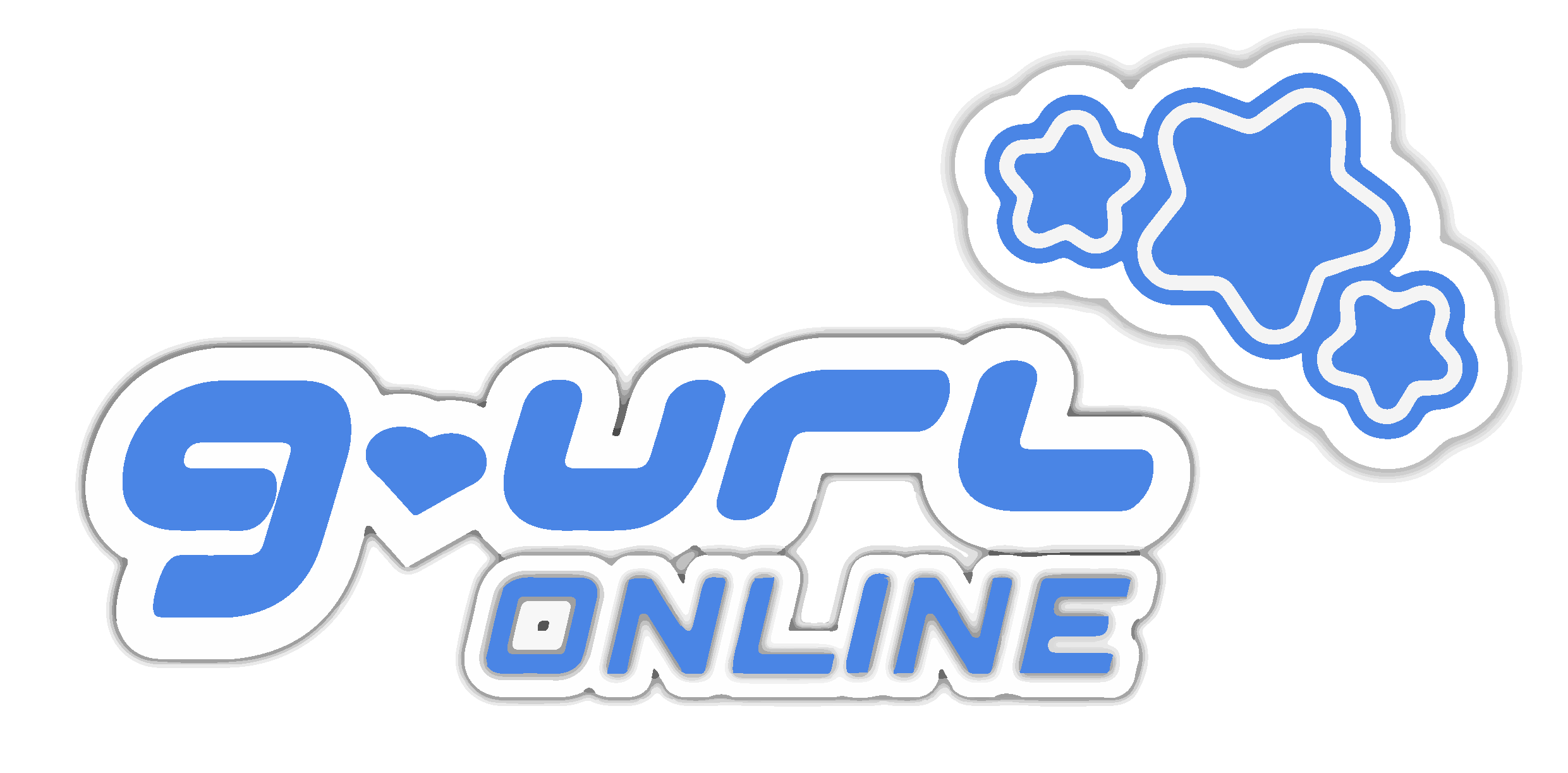
Enjoyed this story? Support independent gaming and online news by purchasing the latest issue of G.URL. Unlock exclusive content, interviews, and features that celebrate feminine creatives. Get your copy of the physical or digital magazine today!

